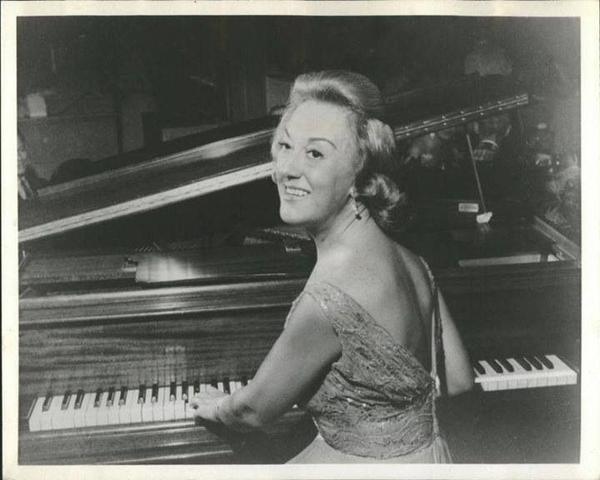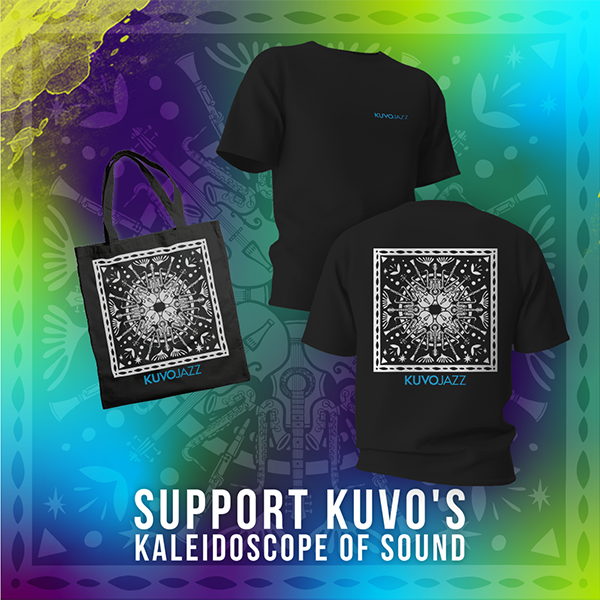A Graceful Rebel

Margaret Marian Turner was born to very proper British parents in 1918. They had a distinct vision for her that did not include the piano and jazz but rather the violin and the symphony. Despite a clear aptitude for the piano, she was not allowed lessons until the relatively advanced age of 16 – something that always hampered her career because she never learned to read music. As a teenager, she was admitted to the prestigious Guildhall School of Music and Drama in London with the mixed message from admissions that her “rampant enthusiasm, God-given faculty and dangerous surplus of imagination” made up for the fact that she “was sadly lacking in technique.” Ironically, it was at Guildhall that Marian developed her love of jazz and, over her parents’ strenuous objections, eventually dropped out to join a 4-piano vaudeville act.
In 1944, hearing that pay was good and the American soldiers handsome, she joined the United Service Organization (USO), where she met Chicago cornetist Jimmy McPartland. They were married and arrived in the U.S. in 1946 — she never lived in England again. McPartland played in her husband’s group, the Austin High Gang, at such notable venues as the Rose Bowl, the Capitol Lounge and the Brass Rail. At the Blue Note and the Silhouette, they played with legendary songstress Billie Holiday. McPartland founded her own trio, consisting of bass, piano and drums, but one music critic predicted certain doom, saying she had three strikes against her: she was female, white and British. She did hit bumps along the way, like the fact that Benny Goodman fired her because he didn’t like her modern sound, but in 1958, when a famous photograph was taken in Harlem of the 57 most notable black and white jazz musicians of the day, Marian McPartland was proudly among them.
In addition to performing, over time McPartland became a passionate jazz advocate, writing articles, reviews, and even a collection of essays about women in jazz called All in Good Time. She taught jazz, judged at jazz competitions and festivals, and,
worried about the advent of rock n’ roll, worked tirelessly to bring jazz to all demographics. She was a successful song writer, thanks to such famous vocalists Tony, Bennett, Sarah Vaughan and Peggy Lee. In 1978 she launched a radio show on NPR called “Marian McPartland’s Piano Jazz.” The format was simple: she sat at a piano while interviewing famous musicians from all genres, and most often, a duet broke out. The wildly popular show continued until 2011, just two years before her death. It is still NPR’s longest running cultural program.
All her life, McPartland was a graceful rebel, often bucking trends and finding her own way. She was unafraid of change and always ahead of her time. As she wrote in the late 1950s about being a woman in the professional jazz world, “ Can’t we women make our own contributions to jazz by playing like women, but still capturing the essential elements of jazz – good beats, good ideas, honesty and true feeling.”
***
March is National Women’s History Month! We’ll be sharing stories about some of the most accomplished women in jazz, both nationally and locally. We hope you enjoy this tribute to the women of jazz.
9(MDA3NDU1Nzc2MDEzMDUxMzY3MzAwNWEzYQ004))
Become a Member
Join the growing family of people who believe that music is essential to our community. Your donation supports the work we do, the programs you count on, and the events you enjoy.
Download the App
Download KUVO's FREE app today! The KUVO Public Radio App allows you to take KUVO's music and news with you anywhere, anytime!
